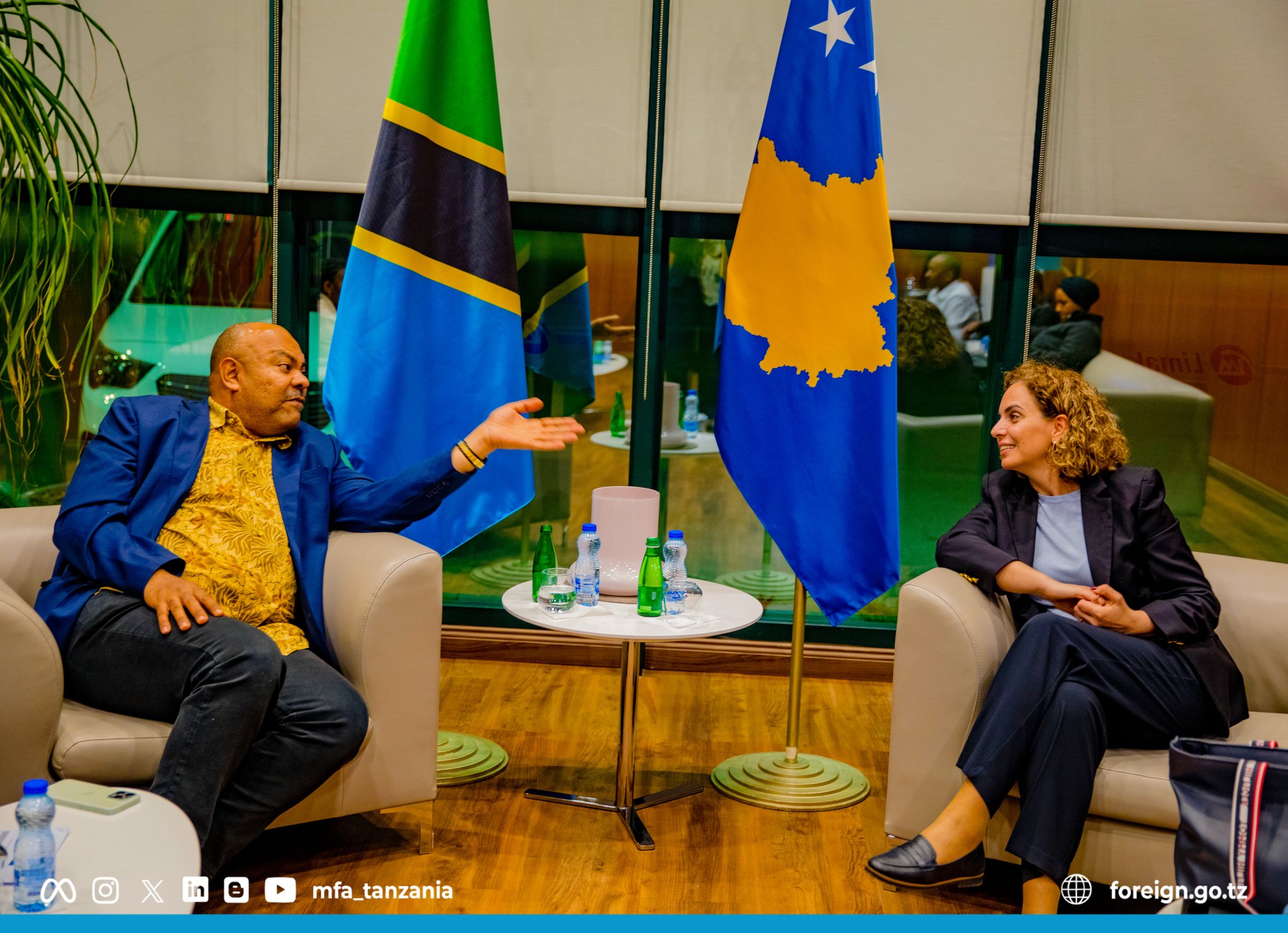
Kenya defends Kosovo recognition as Tanzania moves to deepen ties with Pristina » Capital News
NAIROBI, June 1 — Kenya’s Principal Secretary for Foreign Affairs, Korir Sing’oei, has defended the country’s decision to officially recognize Kosovo, citing a growing trend of African nations strengthening diplomatic ties with the Balkan state.
The PS pointed to the ongoing official visit by Tanzania’s Minister for Foreign Affairs and East African Cooperation, Ambassador Mahmoud Thabit Kombo, to Kosovo as a clear indication of increasing African engagement with Pristina.
Tanzania’s Foreign Minister, who arrived in Kosovo on Sunday, is expected to participate in a number of engagements and discussions aimed at bolstering bilateral relations.
“For those claiming Kenya’s recognition of Kosovo was unmerited,” Sing’oei commented quoting Tanzania’s Foreign Office post on Kombo’s visit.
PS Sing’oei was responding to criticism from some quarters questioning Nairobi’s recent decision to officially recognize the Republic of Kosovo as an independent state, paving the way for the establishment of diplomatic relations between the two nations.
The recognition was announced in a proclamation signed by President William Ruto at State House, Nairobi, on March 26, where Kenya acknowledged Kosovo’s right to self-determination.
The statement noted that Kosovo declared independence on February 17, 2008, and has since been recognized by more than half of the United Nations member states.
Mixed reactions
The move has sparked mixed reactions both domestically and across the region.
Tanzania’s Ministry of Foreign Affairs disclosed that during his stay in Kosovo, Amb Kombo will participate in the Third International Conference on Women, Peace, and Security, scheduled for June 2–3, 2025.
The Tanzanian delegation, which includes senior officials from the Ministry of Foreign Affairs, is also expected to hold bilateral talks with Kosovo’s President Vjosa Osmani Sadriu and Foreign Minister Donika Gërvalla-Schwarz.
The visit also includes engagements with the Kosovo-American Chamber of Commerce, as well as discussions on global peace and regional integration.
Kosovo declared independence from Serbia in 2008 and has since been recognized by over 100 UN member states, although several countries continue to withhold formal diplomatic recognition due to geopolitical sensitivities.
On March 27, the Serbian government strongly condemned Kenya’s decision to recognize Kosovo as an independent state, calling it a violation of international law and a breach of United Nations Security Council Resolution 1244.
‘Regrettable’
In a statement issued by the Ministry of Foreign Affairs of Serbia, Belgrade criticized Kenya for allegedly disregarding the UN Charter and undermining efforts toward regional stability and dialogue.
Belgrade described the move as “regrettable,” warning that it could harm its traditionally strong relations with Nairobi, which have been built over decades.
“This move sets a regrettable precedent in the traditionally friendly relations between Serbia and Kenya — relations that have been built over decades on the principles of mutual respect and cooperation, including within the Non-Aligned Movement,” the Serbian government said.
Serbia also dismissed any justification based on the 2010 advisory opinion of the International Court of Justice (ICJ), arguing that it does not legitimize Kosovo’s unilateral declaration of independence.
The Serbian government pointed out that 28 countries have withdrawn or suspended their recognition of Kosovo in recent years, emphasizing that a significant portion of the international community remains supportive of Serbia’s territorial claims.
Despite Kenya’s decision, Serbia vowed to intensify its diplomatic efforts to counter Kosovo’s recognition and defend its sovereignty through all available legal and diplomatic channels.
“The Republic of Serbia will take all necessary diplomatic and political measures in response to this unacceptable and unfriendly act,” the statement said.
Though Kosovo declared independence in 2008, its statehood remains contested, with Serbia and key international actors, including Russia and China, opposing its recognition.